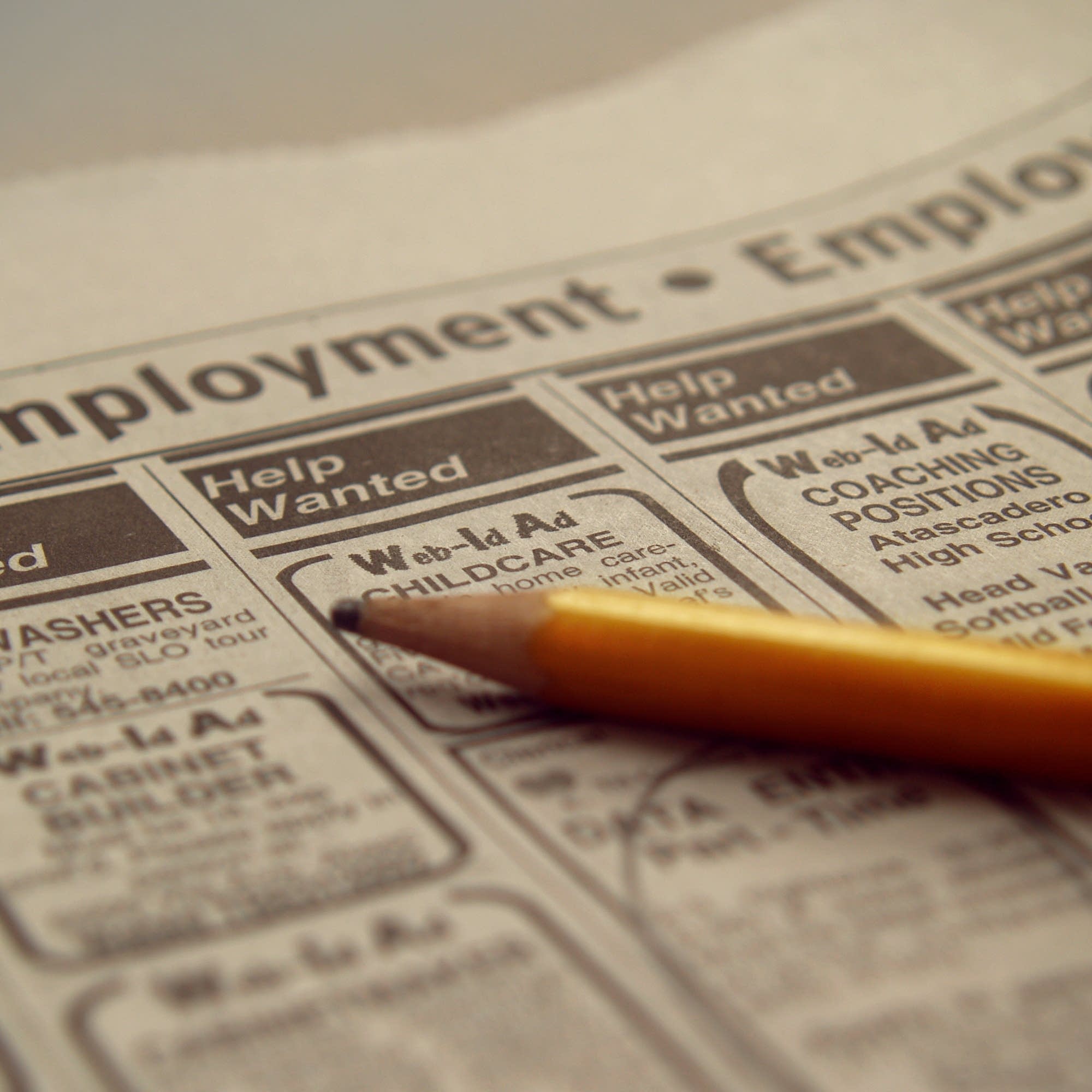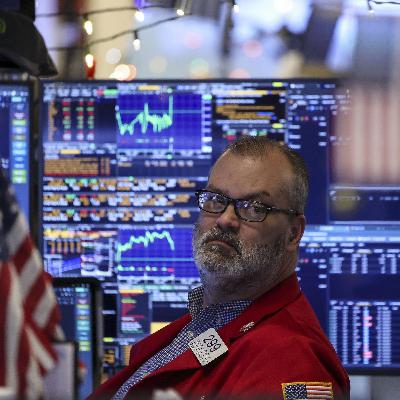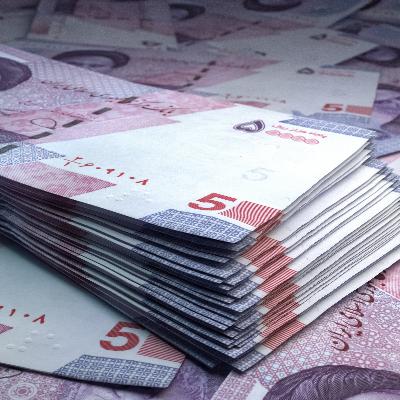Discover Marketplace Morning Report
Marketplace Morning Report

Marketplace Morning Report
Author: Marketplace
Subscribed: 8,611Played: 1,015,020Subscribe
Share
© Copyright 2026 Minnesota Public Radio
Description
In less than 10 minutes, we'll get you up to speed on all the news you missed overnight. Throughout the morning, Marketplace's David Brancaccio will bring you the latest business and economic stories you need to know to start your day. And before U.S. markets open, you'll get a global markets update from the BBC World Service in London.
646 Episodes
Reverse
According to the just-released December jobs report, only 50,000 people were hired last month, fewer than expected. Overall, the month capped off the slowest year for job creation since 2020 and the second slowest since 2009. Plus, LA fire survivors share personal items lost and found in the aftermath of the blaze.
Altadena residents eager to build more fire-resistant new homes run up against obstacles of expense, labor, availability of materials, and of course, the question of whether insurance will pay for it.
From the BBC World Service: The Iranian government has shut down internet access in response to ongoing protests, with demonstrators calling for the removal of the country’s Supreme Leader. Also, a major recall of Nestle baby formula expands to more countries, and after a volatile 2025, what’s on the horizon for cryptocurrency in the new year?
Supermarket chain Wegmans has made headlines this week for their use of surveillance technology on customers. But they’re far from the only retailer deploying this type of tech to prevent theft — and encourage extra spending. Plus, a retired nurse shares her plans for rebuilding in Altadena.
The homes still left standing after last year’s Eaton Fire face their own set of questions and challenges. What types of structures stand up better to fire damage than others? How can you know when dangerous smoke damage has truly been remediated? And, most crucially, how much are insurance companies actually willing to pay for any of it?
From the BBC World Service: After a rocky 2025, many analysts expect a similarly unsettled 2026. Plus, a new study indicates faster weight gain after quitting GLP-1 drugs, and X has failed to meet a deadline to address explicit content generated by its AI chatbot Grok.
The estimated value of the homes wiped out by the Eaton and Palisades fires one year ago? $27 billion. On a single street in Altadena, 15 houses were destroyed, including that of "Marketplace Morning Report" host David Brancaccio. This morning, Brancaccio checks in with two families on his block — one who decided to sell and one who's already partly rebuilt. Then, how will investors respond to this morning's private payroll data?
A survey released in the fall finds that most people displaced by the Southern California wildfires a year ago are still living in temporary housing. Since so few homes have been rebuilt, how are people paying for shelter? Today, we'll hear how survivors have organized to demand accountability and the resources needed. Plus, a semiconductor chip shortage echoes the great supply chain crisis of 2020, but this time it's driven by AI.
From the BBC World Service: One of Europe's busiest airports has canceled more than 700 flights today as a disruption caused by snow and ice enters a sixth day. The problem was made worse because of a shortage of anti-freeze for de-icing planes at Schiphol Airport in Amsterdam. Dutch airline KLM is the main one affected. Then, China's Foreign Ministry calls President Donald Trump's demands for Venezuelan oil "typical bullying" from the U.S.
Dustin Kunkel is a father of two, works in the solar panel business, and is a neighbor of "Marketplace Morning Report" host David Brancaccio. Kunkel lost his Altadena home in the Eaton Fire and, since then, spoke to 30 contractors before finding someone to rebuild the house. We hear what the process — and pricing — has been like. Also, the realities of this economy continue to diverge for lower- and higher-income households.
Today, we have the story of one burned block: that of "Marketplace Morning Report" host David Brancaccio. Last year's wildfires in California were the costliest in history, with more than 16,000 structures destroyed and over 30 deaths. Fifteen of the houses destroyed in the Eaton Fire sat on a single street in Altadena. A year on, we check in with Brancaccio's neighbors to hear about life, loss, and efforts to rebuild.
From the BBC World Service: Delcy Rodríguez, who had served as vice president under President Nicolas Maduro, has promised stability amid economic uncertainty. After taking an oath of office, she vowed to guarantee the peace of the country, including "the economic and social tranquillity of our people." This morning, we recount the history of how Venezuela got to this moment. Plus, Nestle recalls baby formula products in Europe over concerns of food poisoning toxins.
Investors see some oil companies as big winners with the U.S. forcing a change of leadership in Venezuela. This morning, we'll hear how U.S. oil companies are faring in light of the news. Then, we'll provide some context for oil production and chat about global demand, what it'd take to develop Venezuela's infrastructure to help spark production, and learn how long it would take for U.S. oil companies to be reimbursed for investments.
Oil markets and financial markets seem to be shrugging off the major geopolitical story out of the weekend: the U.S. arrest of Venezuelan President Nicolás Maduro. "Investors are looking at the situation and not seeing a dramatic change in the state of affairs that could alter global markets in a major way," said Julia Coronado, founder of MacroPolicy Perspectives. "What makes most sense ... is to wait and see what unfolds," said Ben Kumar, head of equity strategy at investment management business 7IM. On today's show, we unpack it all.
From the BBC World Service: The U.S. stunned the world with the capture of Venezuelan President Nicolás Maduro over the weekend. Donald Trump has said U.S. companies will fix Venezuela's badly broken oil infrastructure and start making money for the country. We’ll hear more about reactions on the ground in Venezuela and learn more about its role in the global oil supply chain. Also: an allowance for Iranian citizens and a meeting between the leaders of China and South Korea.
Greg Abel has officially taken the reins at Berkshire Hathaway, stepping into the role long held by the titan of value investing, Warren Buffett. We look at what Abel’s leadership could mean for an empire that touches everything from energy to insurance. Plus, stocks had a strong year, with the S&P 500 and Nasdaq posting double-digit gains, but the job market tells a very different story. And do professional movie critics still matter in an age of Reddit threads and Letterboxd reviews?
Healthcare costs are climbing for many Americans as enhanced Affordable Care Act tax credits roll back, raising premiums for middle-income households unless Congress intervenes. In this vacuum, we look at a major new federal investment aimed at expanding healthcare access in rural communities. Plus, U.S. travel is sending mixed signals this year — domestic travel is booming, but fewer international visitors are visiting the States, and that shift is being felt by America’s museums.
From the BBC World Service: Iranian authorities say at least seven people were killed in protests on Thursday, the fifth day of demonstrations against the government's economic policies. Plus, the U.S. Department of Commerce will reduce controversial anti-dumping tariffs on some Italian pasta brands, which were accused of selling their products in the U.S. at artificially low prices. And we look at one profession that has become a casualty of the digital age — the film critic.
Gas prices hit their lowest level for a December since 2020, according to AAA, thanks largely to a global oil glut that pushed crude prices down about 20% last year. We look at whether cheaper fuel is likely to stick around in 2025. Plus, a new business in New York City doubles as a museum celebrating the history and cultural impact of the photo booth. And we examine how the expiration of federal tax credits is reshaping the electric vehicle market after a rocky year.
Minimum wages are rising in 19 states today, giving millions of workers a pay bump as the new year begins. We break down where wages are increasing and what’s driving those changes. Plus, only about 20% of recyclable household waste actually gets recycled. We explore how AI may be changing the economics of recycling.
























4:30 The House won't take this up since Speaker Johnson pushed through something earlier this year that prohibits the house from taking up the discussion for 2 years from when it was passed. The entire possibility for the House's oversight was taken away by themselves (ie Trump\MAGA).It's not just that they won't take it up, they can't because they aren't holding session and even if they were they're explicitly prohibited from it.
With rising concerns over student loan defaults, understanding how loan repayments work is more important than ever. Maksuerän through https://euribor12k.fi/ offers tools to calculate monthly payments and manage Euribor-linked loans effectively, helping borrowers plan ahead and avoid defaults. This resource provides clarity on interest rates and repayment schedules, which can be crucial for anyone navigating debt responsibly.
Tariffs will make business move into USA and this will make us less dependent on countries that could disrupt our imports of building materials , food, and medicine, as what happened to Britain in WWII. We supported Britain, but who would support us?
Get Fauci away from those chickens !!
Elite did a Maui on Pacific Palisades.
lack of imported labor raises labor costs, read opening the border and cheap labor pours in, the lower end workers make less money. How does that help the poor? Cesar Chavez was against the inflow border crossing cheap labor because it lowers the incomes of all but the corporations. Ask your Democrat politician why Biden hates labor. While you are at it, ask Nancy Polosi why she too hates having to pay the higher amount for local labor and insists on open labor borders.
💚WATCH>>ᗪOᗯᑎᒪOᗩᗪ>>LINK>👉https://co.fastmovies.org
We don't need a Gavin Newsom to crash the United States of America like he is crashing California.
Have all the women kill simutaneously all the Talban men. Then go to university.
Being a Democrat is self harm.
Just have the most successful money launderer help with the cover-up, call Biden.
Although baccarat appears to be a fairly straightforward, simple game that is completely dependent on chance, it has remained very popular for many years. The most difficult part of the game is counting points when the winner is determined, but in offline casinos this is done by the dealer, and on online platforms everything happens automatically. You can find more useful information on this topic here https://xn--12cfvb5etcxfbb7a3itdjh.com/
Humanitarian aid to Gaza so they can repeat?
If I spent , borrowed, then dumped that borrowed money into the market, as much as the Federal government does, the inflation would grow exponentially. The key is that the inflation is based on the difference between taxes income and money spent. If government borrowing covers the over spending each borrowed dollar lowers the value of each dollar already in the market, since the tax income doesn't change. Ergo inflation. Consumer spending increases the market value by the exchanging of dollars.
Why not improve public schools rather than drag Private Schools down.
Using Biden style overseeing. See no Evil, Hear no Evil, Say nothing about the Evil, such as Biden's control over the FBI and the CIA. Nancy Pelosi must be proud of the use of child labour as she promoted border crossing of all the children to do various kinds of work. Can you list all the things children can do? I knew you could. Such a good neighbor.
Nothing like semi- slavery to save on labor costs. Elites develope vaccines to have low wage autistic laborers for duties that would have cost more for non-autistic labor. You missed a table.
Take the money and run, sounds like a Leftist. I didn't know Biden was an artist.
Hitler thought a war and Holocaust was worth getting art.
Downtowns anywhere in California are exposed to the security that is not provided by the Democrat political powers in California and the fear of Downtown attacks prevents wise businesses from operating in downtown areas.